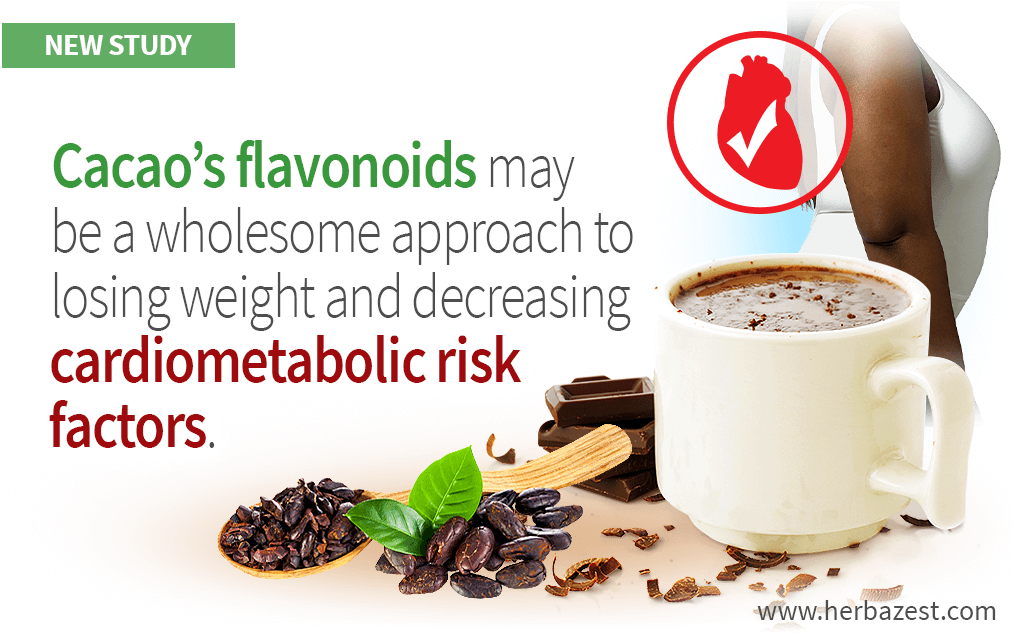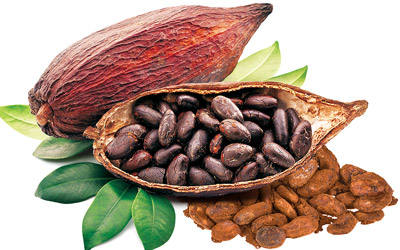For overweight and obese adults, losing weight is one of the key strategies to decrease the risk of cardiometabolic diseases, such as diabetes or high blood pressure. However, standard approaches to weight loss require a great deal of self-discipline and may seem unattainable to many.
Interestingly, cacao's flavonoids have shown to play a role in preventing metabolic and heart disease as well as influencing body weight and other anthropometric factors.1,2 Thanks to these beneficial effects, they may potentially be used for weight loss and cardiometabolic disease prevention.
The aim of this study was to investigate the effects of cacao flavonoids on anthropometric and cardiometabolic risks factors in overweight people.
The Study
This double-blind, placebo-controlled, pilot clinical trial was a collaboration between several researchers from various Mexican research institutions. Their findings were published in the Revista Mexicana de Cardiología.
It involved 15 overweight individuals with borderline criteria of metabolic syndrome. They either received supplements of cacao bean extract powder with 80 mg of flavonoids per serving (dissolved in 200 mL of water) or placebo supplements. The study lasted for 4 weeks.
Cardiometabolic measurements - such as blood pressure, lipid profile, and glycemia - and anthropometric measurements - like body weight and body mass index (BMI) - were taken before, during, and after the study.
The Results
Regarding anthropometric values, participants in the flavonoid group showed significant reductions in body weight and waist circumference in comparison to the placebo group.
In regards to cardiometabolic indices, the flavonoid group showed a substantial decrease in glycemia, triacylglycerols, total cholesterol, low-density lipoprotein (LDL) cholesterol, and protein oxidative markers.
Notably, there was a reduction of the ratio of triacylglycerols and high-density lipoprotein (HDL) cholesterol, which is a surrogate marker for insulin resistance.
Additionally, the quality-of-life scores also greatly improved in the participants taking cacao flavonoid supplements, as opposed to a nil or minimal change in the placebo-receiving participants.
What Does this Mean?
This clinical trial has demonstrated that cacao flavonoids are effective for reducing cardiometabolic risk factors in overweight individuals. They have also shown beneficial for reducing body weight and waist circumference as well as improving participants' overall quality of life.
Introducing cacao's flavonoids into daily foods can be an easy and wholesome approach to helping overweight and obese people reduce weight and risks factors, thus optimizing their health and lifespan.
Other flavonoid-rich herbs are tea, tomatoes, blueberries, oranges, and more.
Sources
- Revista Mexicana de Cardiología, Beneficial effects of a flavanol-enriched cacao beverage on anthropometric and cardiometabolic risk profile in overweight subjects, 2015
Footnotes:
- European Cytokine Network. (2006). Recent advances in the relationship between obesity, inflammation, and insulin resistance. Retrieved November 12, 2020 from https://pubmed.ncbi.nlm.nih.gov/16613757/
- Journal of Cardiovascular Pharmacology. (2010). Cocoa, chocolate, and cardiovascular disease. Retrieved November 12, 2020 from https://www.ncbi.nlm.nih.gov/pmc/articles/PMC2797556/





